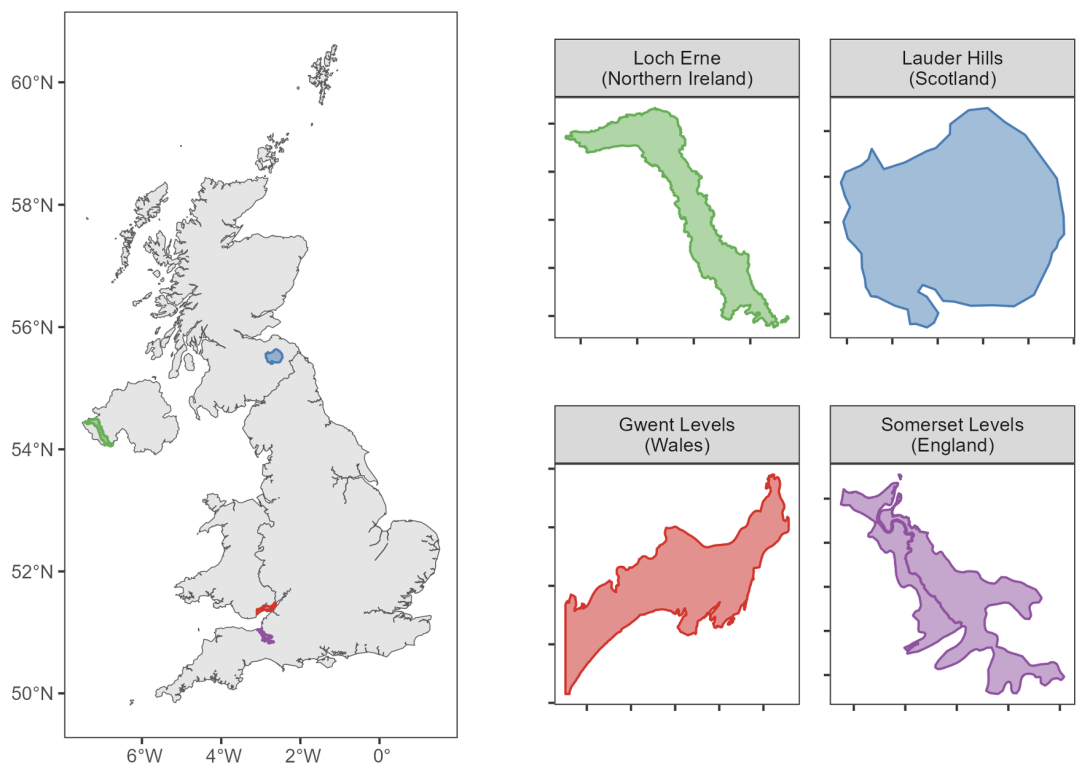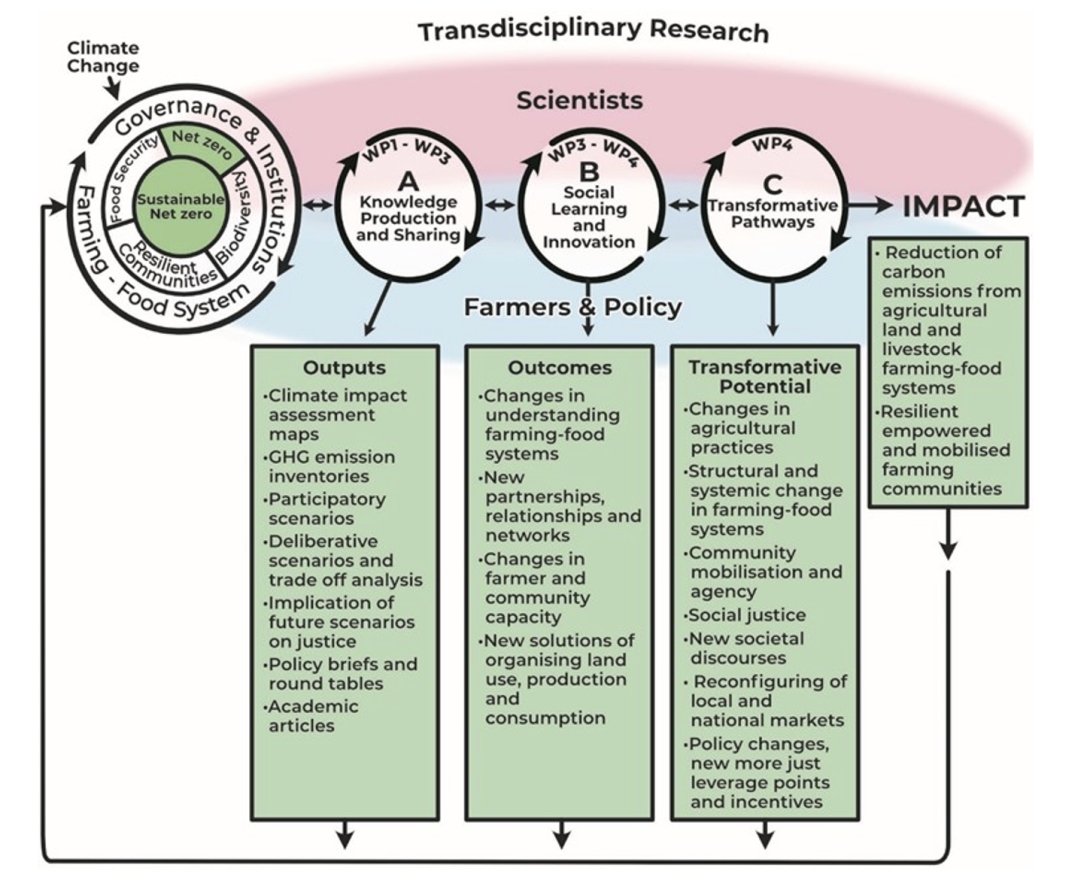About the Project
The UK’s land use is crucial to achieving the policy ambition of a net zero UK economy by 2050. However, in addition to greenhouse gas reduction and removal, many outcomes are required from land, all whilst adapting to the impacts of climate change. These include continued food production, restoring biodiversity and maintaining people’s livelihoods.
As key land users, farmers have the potential to be an important part of the solution to achieving net zero. The JUSTLANZ project recognises that their perspectives and requirements for land may not match national priorities. There is a need to identify future land use strategies and options that integrate local and national priorities. This includes identifying pathways that support change in communities dependent upon farming, which enable a transition that minimises harm and creates opportunities. It is urgent that these pathways are identified now to increase our chances of achieving a just net zero transition by 2050. By a just transition, we mean: (1) shifting to net zero in ways that see the benefits and burdens of change being fairly distributed; (2) co-designing pathways for change with those most affected by the changes; (3) using the opportunity of change to address existing inequalities, promote equity and enable social inclusion.
The vision of JUSTLANZ is to identify socially-just pathways for transforming UK farming- food systems. These socially-just pathways will be co-produced with stakeholders and reconcile sustainable net zero with other land use ambitions by using spatially explicit land use scenario modelling. We are focussing on livestock farming systems, informed by deep collaborations in a focal grassland landscape in each UK nation (Figure 1).

Figure 1: Location of JUSTLANZ’s four focal landscapes
JUSTLANZ is a collaboration between people working locally and nationally in the farming and food system, as well as conservation practitioners, academics and policy makers. In each of the four landscapes we have embedded engagement officers from local organisations to facilitate the knowledge and views of local communities being respectfully, deeply and beneficially included. Our local partners include the Living Levels Landscape Partnership in Wales, Farming & Wildlife Advisory Group – South West in England, Scottish Agriculture College Consulting in Scotland, the Nature Friendly Farming Network in Northern Ireland and place-based RSPB colleagues. Additionally, our advisory panel brings together representatives of organisations working on farming and food issues at UK or devolved nation scales.
The JUSTLANZ research team is a cross-organisational collaboration. Scientists at RSPB bring land use scenario modelling and social science expertise, as well as policy advocacy channels. Researchers from the James Hutton Institute bring expertise in modelling and land use policy, with colleagues from the Universities of Cambridge and Greenwich bringing further expertise in carbon dynamics in grasslands and soil. Researchers from the University of Leeds provide expertise in land use trade-off modelling, and social science to ensure ethical, robust and high-quality research.
JUSTLANZ takes a truly transdisciplinary approach (Figure 2), combining social science and stakeholder knowledge, with sophisticated carbon and land use modelling, to identify the just transformation pathways to net zero in food farming systems and to find realistic policy recommendations.

Figure 2: How JUSTLANZ embraces a transdisciplinary approach
JUSTLANZ’s approach involves four interlinked work packages (WPs) which together will provide the following outcomes:
• An improved understanding of how policy and climate drivers may affect the UK’s land-use contributions to net zero
• New and strengthened partnerships, relationships and networks between scientists, livestock farmers, communities, food-system actors and policy-makers
• Greater understanding of the impacts of farming-food systems and structures on achieving net zero
• Better farming community capacity for changing land use and management
• Innovative solutions for organising land use, production & consumption in livestock systems towards net zero
• Together with food-farming communities in each landscape, develop a just pathway towards net zero
These outcomes will be achieved by addressing four key research questions, which are the focus of four interlinked work packages:
WP1: How do climate change impacts and multiple policy objectives affect land use and GHG emissions?
WP2: What aspirations, values, visions & capacity underpin the transition to a just net zero future?
WP3: What are the implications of achieving net zero & other ambitions at multiple spatial scales?
Subscribe to our Newsletter
A quarterly update of all LUNZ Hub activities, events and news stories.
